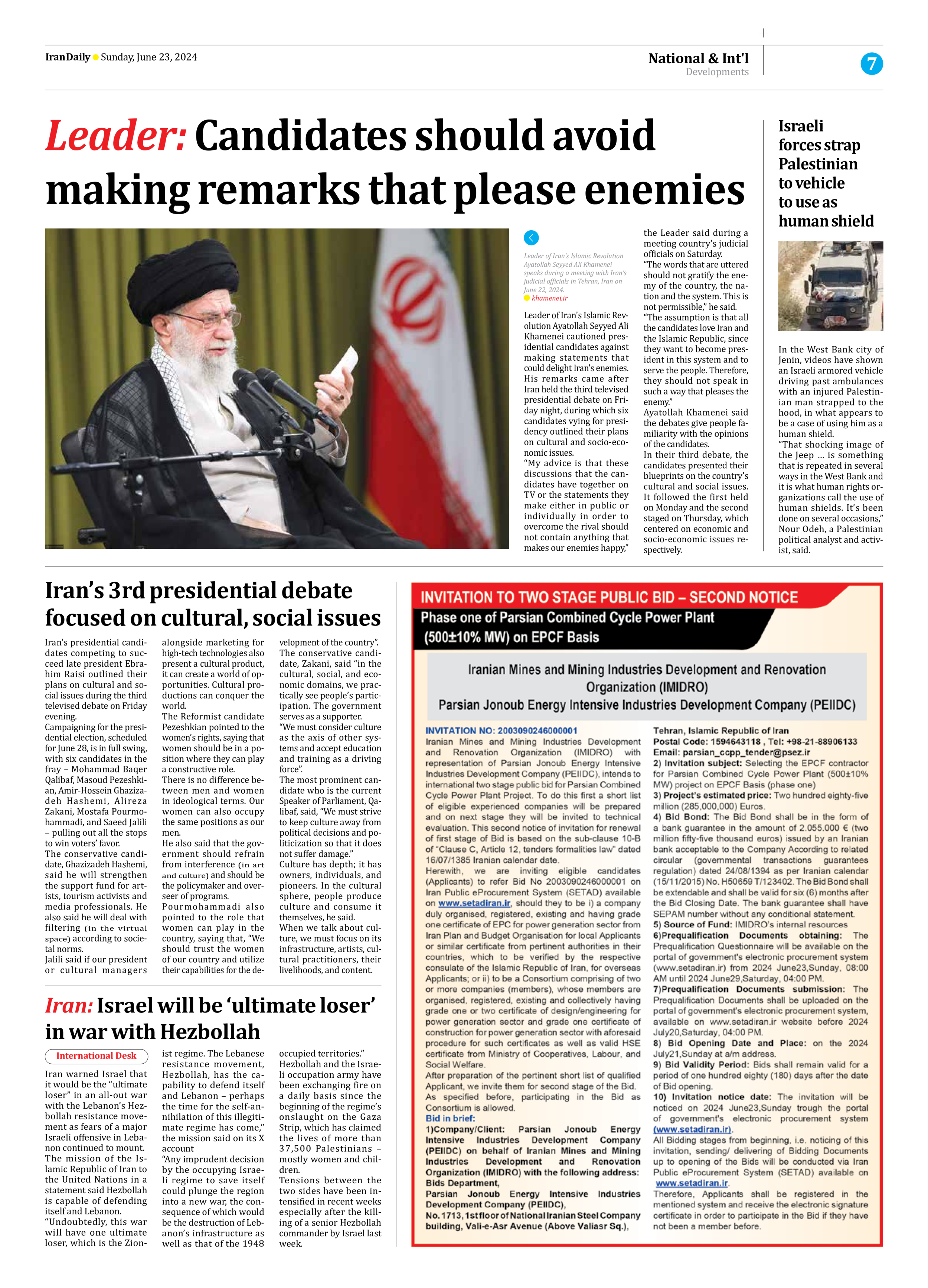
Copy in clipboard...
Iran’s 3rd presidential debate focused on cultural, social issues
Campaigning for the presidential election, scheduled for June 28, is in full swing, with six candidates in the fray – Mohammad Baqer Qalibaf, Masoud Pezeshkian, Amir-Hossein Ghazizadeh Hashemi, Alireza Zakani, Mostafa Pourmohammadi, and Saeed Jalili – pulling out all the stops to win voters’ favor.
The conservative candidate, Ghazizadeh Hashemi, said he will strengthen the support fund for artists, tourism activists and media professionals. He also said he will deal with filtering (in the virtual space) according to societal norms.
Jalili said if our president or cultural managers alongside marketing for high-tech technologies also present a cultural product, it can create a world of opportunities. Cultural productions can conquer the world.
The Reformist candidate Pezeshkian pointed to the women’s rights, saying that women should be in a position where they can play a constructive role.
There is no difference between men and women in ideological terms. Our women can also occupy the same positions as our men.
He also said that the government should refrain from interference (in art and culture) and should be the policymaker and overseer of programs.
Pourmohammadi also pointed to the role that women can play in the country, saying that, “We should trust the women of our country and utilize their capabilities for the development of the country”.
The conservative candidate, Zakani, said “in the cultural, social, and economic domains, we practically see people’s participation. The government serves as a supporter.
“We must consider culture as the axis of other systems and accept education and training as a driving force”.
The most prominent candidate who is the current Speaker of Parliament, Qalibaf, said, “We must strive to keep culture away from political decisions and politicization so that it does not suffer damage.”
Culture has depth; it has owners, individuals, and pioneers. In the cultural sphere, people produce culture and consume it themselves, he said.
When we talk about culture, we must focus on its infrastructure, artists, cultural practitioners, their livelihoods, and content.







